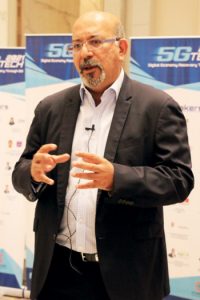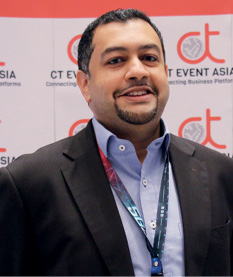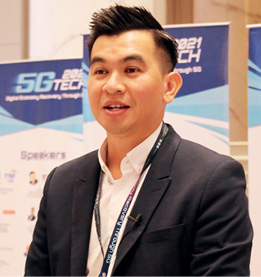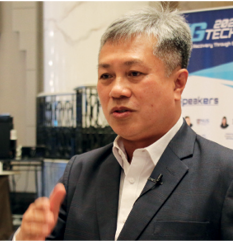It was not only how healthcare can be powered by 5G that was discussed at the 5G TECH Conference but also how other sectors could benefit from ultra-fast connectivity.

The CEO and founder of EdgePoint, a telecommunications tower infrastructure company, Suresh Sidhu, said: “This is a very interesting and timely event. 5G is the topic of the day and probably for the next 10 years, not just in Malaysia or this region but for the whole world as well.”
He emphasised 5G would enable more machine connectivity on wireless networks, leading to more prevalent use of robots, automation and devices, which will be more reliable and able to accomplish complex tasks.
“We can offload many of the things that we currently do manually.”
Another area 5G would be beneficial, especially in Malaysia, said Suresh, is getting high-quality bandwidth out into areas that never had before, which is challenging to do with fibre.
“So, wireless technology is still the most efficient way to reach large populations, particularly populations that don’t live in main towns.”
5G vital enabler for smart cities development
Another area of discussion was smart cities development. ‘5G for Smart City’ and ‘Working towards a shared vision of Smart Cities’ panel sessions discussed the role and potential of 5G in developing smart cities and improving public services and infrastructures.
In Penang, smart city projects are part of the State government’s Digital Transformation Masterplan.
Digital Penang Sdn Bhd CEO Officer Tony Yeoh stated: “Smart city projects are crucial, and the 5G digital infrastructure will be the enabler for us to do such smart city projects.”
Founded in April 2020, Digital Penang is an agency under the State to promote digital economy, digital society and digital innovation.

Harish Subramaniam, Executive Director of 27Digital, shared there were many initiatives on smart cities, and 27Digital is involved with quite a number of smart city projects with town councils in various cities across Malaysia developing implementing blueprints for smart city applications.
According to him, one key area for smart cities implementation is the internet of things (IoT), which needed to be fueled and run effectively, and 5G will be a critical layer for that to happen.
Chua Yong Howe, Chief Digital Officer of UEM Edgenta Bhd, said: “Smart buildings are the foundation of smart cities, and UEM Edgenta is involved in managing various key buildings and infrastructure in Malaysia and beyond, such as the likes of the prime minister’s office.
“With 5G and IoTs attached to the assets, we tend to receive real-time data. We will be able to create a digital frame of the building, and it allows you to do various simulations such as emergency evacuation and to assess the health status of the assets within the building itself.”

Privacy concerns
As for concerns of data privacy and security surrounding 5G systems, Nicholas Sagau Tony Ngimat, Chief Operating Officer of Rev Media Group and President of the Malaysia Digital Association, said: “Privacy concerns have always been around. It is a matter of the respective owner of the application or content to create privacy for the users.
Meanwhile, users or consumers need to understand that everyone is being tracked even without 5G. “So, we need to be careful of the things we share.”
He also shared his appreciation for the conference, which allows participants to discover the opportunities available in the market for 5G system applications and sharing cases that can be followed or adapted in other states or cities here and around the world.

Prof Dato’ Dr Mazliham Mohd Su’ud, President and CEO of Multimedia Universiti, opined the same on privacy and security.
“It is up to us on how we use the platform and make sure that we maintain and protect the privacy of every one of us.”
He also highlighted the need to develop skilled people behind these 5G systems and technologies, particularly those developing content and managing the systems and facilities. — The Health








